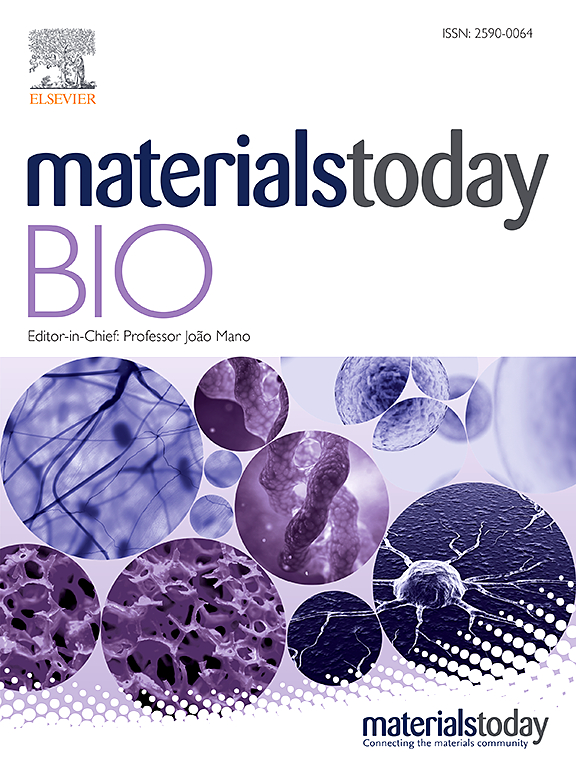Physically engineered extracellular vesicles targeted delivering miR-21-5p to promote renoprotection after renal ischemia-reperfusion injury
IF 8.7
1区 医学
Q1 ENGINEERING, BIOMEDICAL
引用次数: 0
Abstract
Acute kidney injury (AKI) resulting from ischemia-reperfusion injury (IRI) is a common challenge in various clinical practices, yet effective therapies remain elusive. Endothelial injury plays a crucial role in the pathogenesis of renal IRI. Endothelial progenitor cells (EPCs) derived extracellular vesicles (EVs) hold promise as cell-free therapies for treating renal IRI; however, their efficacy is limited by low delivery efficiency. In this study, we developed neutrophils (NEs) membrane-modified EVs (N-EVs) by exploiting the natural properties of NEs to target damaged endothelium. N-EVs inherited the characteristic membrane proteins of NEs along with the biological functions of EPCs-EVs. Results from in vitro and in vivo experiments demonstrated that N-EVs significantly enhanced the targeting efficiency of EVs towards IRI kidneys via P-selectin glycoprotein ligand-1 (PSGL-1). Moreover, N-EVs effectively promoted the proliferation, migration, and tube-formation abilities of injured endothelial cells (ECs) and contributed to overall renal function improvement in IRI kidneys through targeted delivery of miR-21-5p. Additionally, N-EVs could restore damaged endothelial integrity, reduce cytokine release, and inhibit leukocyte infiltration, hence alleviating renal inflammation. In conclusion, our accessible engineering approach represents a promising strategy for treating renal IRI. Furthermore, this membrane hybrid modification can be tailored and optimized for broader applications in treating other diseases.

求助全文
约1分钟内获得全文
求助全文
来源期刊

Materials Today Bio
Multiple-
CiteScore
8.30
自引率
4.90%
发文量
303
审稿时长
30 days
期刊介绍:
Materials Today Bio is a multidisciplinary journal that specializes in the intersection between biology and materials science, chemistry, physics, engineering, and medicine. It covers various aspects such as the design and assembly of new structures, their interaction with biological systems, functionalization, bioimaging, therapies, and diagnostics in healthcare. The journal aims to showcase the most significant advancements and discoveries in this field. As part of the Materials Today family, Materials Today Bio provides rigorous peer review, quick decision-making, and high visibility for authors. It is indexed in Scopus, PubMed Central, Emerging Sources, Citation Index (ESCI), and Directory of Open Access Journals (DOAJ).
 求助内容:
求助内容: 应助结果提醒方式:
应助结果提醒方式:


